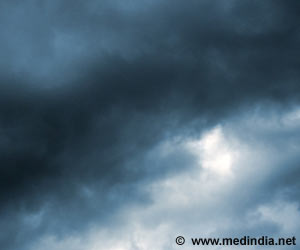International marine scientists have suggested multibillion dollar funding for ocean studies.
The ocean depths have not been sufficiently explored as the sky has been. It is time we got down to doing it, said international marine scientists Sunday.
The Partnership for Observation of the Global Oceans (POGO) has called for huge additional funding, say of the order of two to three billion dollars.A better network of satellites, tsunami monitors, drifting robotic probes or electronic tags on fish within a decade could also help lessen the impact of natural disasters, pollution or damaging algal blooms, they said.
"This is not pie in the sky ... it can be done," said Tony Haymet, chairman of the POGO and director of the U.S. Scripps Institution of Oceanography.
He told news agency Reuters that additional funding would roughly match amounts already invested in ocean research, excluding more costly satellites. New technologies were cheaper and meant worldwide monitoring could now be possible.
"Silicon Valley has come to the oceans," said Jesse Ausubel, a director of the Census of Marine Life that is trying to describe life in the seas.
"Lots of cheap disposable devices can now be distributed throughout the oceans, in some cases on animals, in some cases on the sea floor, others drifting about," he said.
Advertisement
GEO is seeking to link up scientific observations of the planet to find benefits for society in areas including energy, climate, agriculture, biodiversity, water supplies and weather.
Advertisement
"It's a hoary phrase that we know more about the surface of the moon than the deep ocean. It's true. The oceans are virtually unexplored," he felt.
Among ocean projects, POGO wants to raise the number of drifting robotic probes, know as "Argos" and which measure conditions driving climate change, to 30,000 from 3,000 now.
And the scientists said they wanted to expand a network of electronic tagging of fish to understand migrations and give clues to over-fishing.
"By my estimates for $50-60 million a year the world could have a global system, an ocean tracking network that could follow sharks from Cape Town to Perth or follow tuna from Miami to Southampton, Ausubel said.
And better monitoring of the oceans could give more advance warnings of storms, such as a November 15 cyclone that struck Bangladesh and killed 3,500 people. It could also send tsunami alerts -- the 2004 Indian Ocean tsunami killed up to 230,000 people.
"2012 will be the centenary of the sinking of the Titanic. I think Captain Smith would be disappointed by the continuing hesitation to firm up our ocean observing system," Ausubel said.
Source-Medindia
GPL/P





